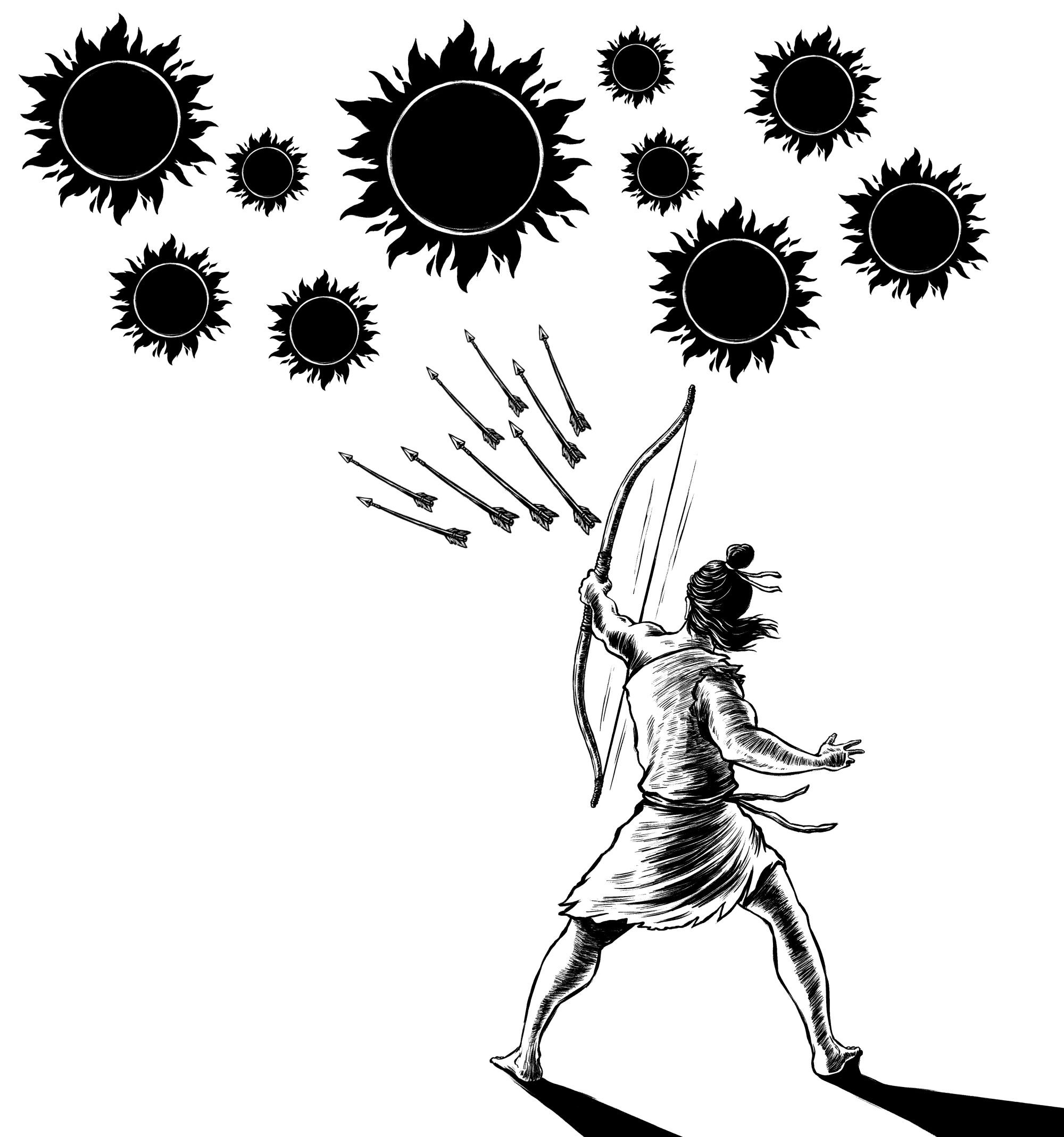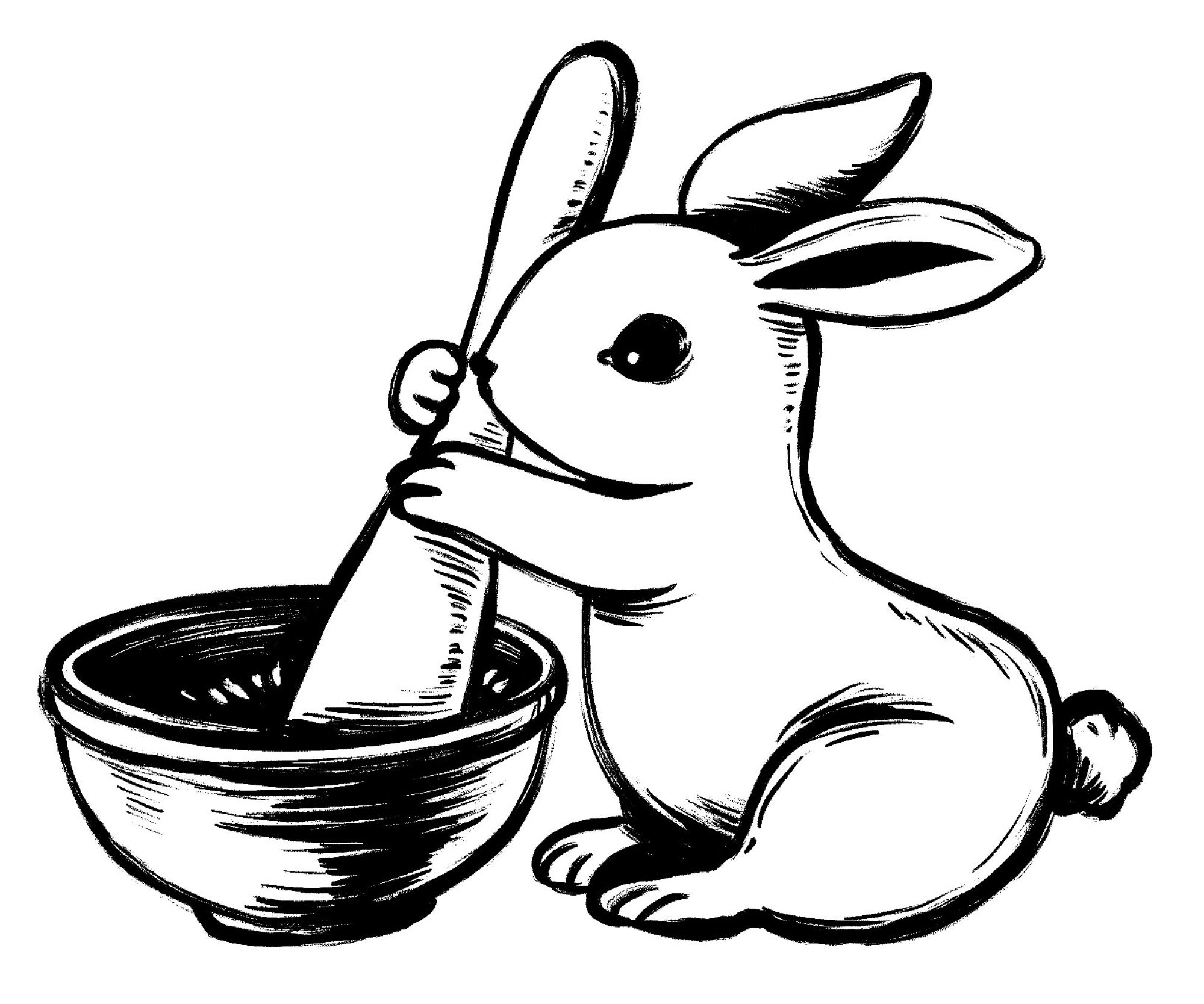
How does the Mid-Autumn Festival story of Chang’e end? Was the Chinese moon goddess selfish or selfless?
- There are different versions of the Mid-Autumn Festival legend of how Chang’e, the Chinese moon goddess, ended up on the moon
- Was she a virtuous wife who sacrificed her life on Earth, or a greedy woman who wanted to live forever?
The tale of Chang’e’s ascent to the moon is one long associated with the Mid-Autumn Festival, but there are many versions of this Chinese legend. Here are two that have been widely told.
Many moons ago, there were 10 suns in the sky and they took turns travelling across the sky. One day, they decided to rebel and they all came out at once.
The suns scorched the Earth so much that the planet was left in a permanent drought, crops withered and died, humans faced the possibility of dying out completely and there was no evening.

He was hailed as a hero and the Queen Mother of the West, a goddess also known as Xiwangmu, gifted him the elixir of immortality.
On one fateful day – August 15 on the lunar calendar – something happened that changed their lives forever. Here is also where the legend diverges.
In the version that has a more positive ending, Chang’e sensed a presence and saw a man in the bedroom. It was Peng Meng, one of Hou’s archery apprentices. The cunning student had learned about the elixir of immortality and wanted to steal it for himself.
To do so, Peng pretended to feel unwell before an outdoor hunting session, using the time Hou was away to sneak into the couple’s bedroom to find the elixir.

Thankfully, Chang’e found him in time to stop his scheming antics. She grabbed the elixir, but Peng, unwilling to give up, tried to force her to hand it over. Chang’e was left with no choice but to drink the potion so that Hou’s apprentice could not reap its benefits.
Chang’e began ascending into the sky, flying past the heavens and leaving her husband on Earth. She settled on the moon and became its goddess so that she could live close to her husband, her one true love.
From then on, people began worshipping Chang’e as the goddess of the moon, paying tribute to her every year with food and fruit.

In the darker version of the lore, Chang’e had grown increasingly curious and greedy upon finding out about her husband’s gift. Wanting to become immortal herself, she decided to take the elixir without Hou’s knowledge.
Chang’e took the potion from where it had been hidden under the bed and drank the entire bottle and began to drift away into the sky. Her husband spotted her and ran outside with his bow and arrow. He aimed directly at her but missed with every shot.
Chang’e eventually landed on the moon, ensuring that her husband could not follow her or shoot at her again.
Out of pity, a white rabbit decided to accompany Chang’e to the moon. The goddess became addicted to the elixir of immortality, and she would spend her days on the moon brewing it. Her rabbit companion would help her make the elixir by pounding herbs into fine powder.

At first, Hou was furious at what Chang’e had done, but the archer soon started to miss his wife. In the evenings, he would look longingly at the moon, worrying that his wife might feel lonely all by herself.
To show her that he was still keeping her company, Hou began preparing Chang’e’s favourite foods and fruit and leaving them out every night, a tradition he kept up until the day of his death.
Other people followed suit, leaving Chang’e offerings on the Mid-Autumn Festival every year.









